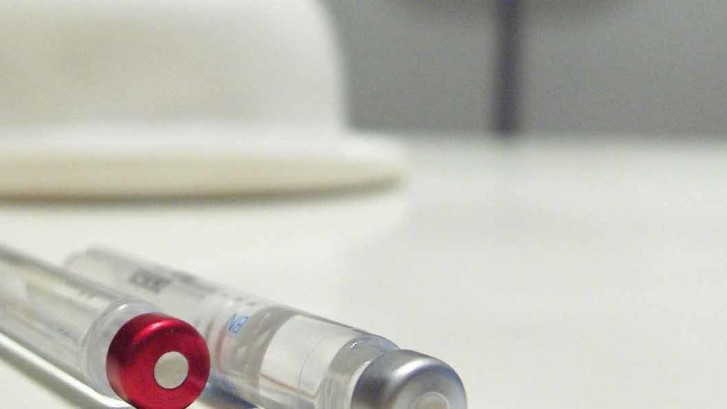Here are profiles of 30 great physician leaders. Each of these physicians is a speaker at the 9th Annual Orthopedic, Spine and Pain Management-Driven Ambulatory Surgery Center Conference: Improving Profitability and Business and Legal Issues (June 9-11; Chicago). Note: Physicians are listed in alphabetical order by last name.
Thomas Bombardier, MD, FACS. Dr. Bombardier is an ophthalmologist and one of the three founding principals of Ambulatory Surgical Centers of America. Prior to founding ASCOA, he established the largest ophthalmic practice in Western Massachusetts, two ASCs and a regional referral center. Over the past 17 years, he has been a real estate developer in Cape Cod, Mass.
John Caruso, MD. Dr. Caruso has more than 16 years of neurological surgery experience. Since completing residencies at the Eastern Virginia Graduate School of Medicine and the University of New Mexico, he has been in private practice with Neurosurgical Specialists in Hagerstown, Md.
John Cherf, MD. Dr. Cherf is an orthopedic surgeon, president of the Chicago Institute of Orthopedics, president of OrthoIndex and clinical advisor to Sg2. He has more than 20 years of clinical experience in orthopedics and sports medicine. He co-founded the orthopedic department at the Neurological & Orthopedic Institute of Chicago and founder of Midwest Orthopedic Institute in Eastern Indiana.
Brian Cole, MD. Dr. Cole is the head of the cartilage restoration center, a multidisciplinary program specializing in the restoration of articular cartilage and meniscal deficiency, and a professor in the department of orthopedics at Rush University in Chicago. He has a professional interest in arthroscopic reconstruction of the patient’s shoulder, elbow and knee.
R. Blake Curd, MD. Dr. Curd is chairman of the board of directors of Surgical Management Professionals. He is an active proponent of physician ownership in healthcare and serves as a director for Physician Hospitals of America and is manager for Medical Facilities Corp., which promotes physician ownership of healthcare facilities through partnerships.
John DiPaola, MD. Dr. DiPaola is an orthopedic surgeon and occupational orthopedist who originally built his Swan Island, Ore., clinic to exclusively serve injured workers. He opened his solo practice in 2000 after being attached to a group of orthopedic surgeons and decided to focus on workers with orthopedic injuries. Dr. DiPaola is affiliated with the Medical Society of Metropolitan Portland, the American Academy of Orthopedic Surgeons and the Oregon Association of Orthopedists. His practice is now known as Occupational Orthopedics and consists of one location in Swan Island and one in Tualatin, Ore.
Robin Fowler, MD. Dr. Fowler is the medical director of the Interventional Spine and Pain Management Center in Conyers, Ga., and an active staff member at Newton and Rockdale Medical Centers. He is also the founder and medical director of Interventional Management Services, a management company for surgical centers from New Mexico to Florida. He is a member of the American Academy of Pain Medicine, National Pain Foundation, American Pain Society and American Society of Anesthesia.
Scott Gibbs, MD. Dr. Gibbs is the founder of the Brain and NeuroSpine Clinic of Missouri and also serves as director of the Southeast Missouri Hospital’s Brain and Spine Center, both located in Cape Girardeau, Mo. In addition to serving on the medical staff at Saint Francis Medical Center, he founded the International Brain Foundation, a non-profit organization aimed at brain awareness.
Scott Glaser, MD. Dr. Glaser is a director on the national board of the American Society of Interventional Pain Physicians, where he has also served as vice president. He is a diplomate with the American Board of Interventional Pain Physicians. During his career, Dr. Glaser has been involved in lobbying for the passage of the NASPER bill fighting prescription drug abuse.
Nameer Haider, MD. Dr. Haider is a pain management physician with Spinal & Skeletal Pain Medicine in Utica, N.Y. Dr. Haider has training in the most advanced techniques in pain treatment, including minimally invasive spinal surgery and laser disc surgery. Dr. Haider is also medical director of Sitrin Medical Rehabilitation Center in New Hartford, N.Y., and partner of the outpatient pain practice Advanced Physician Medicine & Rehabilitation in Utica, N.Y.
Richard Hynes, MD. Dr. Hynes is a spine surgeon who has been serving as president of The B.A.C.K. Center in Melbourne, Fla. since 1996. The B.A.C.K. Center originates from the Brevard Orthopaedic Clinic, which was founded in 1981 by Glenn Bryan, MD. The clinic shifted its focus to treatment of the neck and spine with the addition of Dr. Hynes in 1992.
Richard Kube, MD. Dr. Kube is the CEO, founder and owner of Prairie Spine & Pain Institute in Peoria, Ill. He is also currently affiliated with four hospitals in southern Illinois and is a clinical assistant professor of surgery at the University of Illinois College of Medicine at Peoria. He has presented or lectured at professional seminars in South Korea, Canada, Germany and Hungary, among other locations.
Brent W. Lambert, MD, FACS. Dr. Lambert is the principal and founder of Ambulatory Surgical Centers of America. A board-certified ophthalmologist, Dr. Lambert is currently responsible for business development at ASCOA. Prior to its founding, Dr. Lambert was the developer and owner of three ASCs, including the first eye ASC in New England.
James Lynch, MD. Dr. Lynch is a fellowship-trained spine surgeon and board-certified neurosurgeon and founder of SpineNevada in Reno. He also serves as chairman and director of spine programs at Surgery Center of Reno, and regularly lectures on outpatient spine surgery. He has a professional interest in complex spine surgery, spinal deformities, trauma and minimally invasive surgery.
Bryan Massoud, MD. Dr. Massoud is founder and head surgeon at Spine Centers of America in Fair Lawn, N.J. He received training at Texas Back Institute in Plano, and has performed more than 1,000 endoscopic spine surgeries, including endoscopic cervical spine surgery. He also trains spine surgeons in endoscopic procedures, and articles he has authored on the subject are published in professional journals.
Nelson Mozia, MD. Dr. Mozia practices pediatric surgery, general surgery and colon and rectal surgery with Lutheran Campus ASC in Wheat Ridge, Colo.
Robert Nucci, MD. Dr. Nucci is a fellowship-trained spine surgeon and founder of Nucci Spine & Orthopedics Institute in Tampa, Fla. He helped develop and implement minimally invasive surgical techniques and serves as an international speaker on spine surgery. He is a member of the American Academy of Orthopaedic Surgeons and the North American Spine Society.
Joan F. O’Shea, MD. Dr. O’Shea is a dually trained neurosurgeon and spine surgeon and founder of The Spine Institute of Southern New Jersey in Marlton. She has published several papers on treatments for patients suffering from spinal cancers and complex spinal disorders. She has been an invited lecturer for the American Association of Neurological Surgeons and is a member of the North American Spine Society and Women in Neurosurgery.
Kenneth A. Pettine, MD. Dr. Pettine is the founder of The Spine Institute and Loveland (Colo.) Surgery Center. He has a background in spine surgery, research and rehabilitation and is a co-inventor and co-designer of the Maverick Artificial Disc. He has also served as principal investigator for numerous FDA studies involving non-fusion spine technology.
Greg Poulter, MD. Dr. Poulter is a spine surgeon at Vail (Colo.) Summit Orthopaedics. He completed a spine fellowship at the University of Michigan in Ann Arbor and the University of California San Francisco. He was among the first surgeons to perform minimally invasive spinal fusion.
David J. Raab, MD. Dr. Raab is on the board of managers at the Illinois Sports Medicine & Orthopedic Surgery Center and is a fellowship-trained sports medicine physician with Illinois Bone & Joint Institute in Morton Grove. His professional interests include total joint replacement, arthroscopy and pediatric orthopedics. He also serves as an assistant professor at Northwestern University Medical School in Chicago.
Michael Redler, MD. Dr. Redler is a founding partner of OSM The Orthopaedic & Sports Medicine Center in Fairfield, Conn. He is a fellowship-trained sports medicine and hand surgeon. He also serves as the orthopedic consultant to Major League Lacrosse and is a professor of physical therapy and athletic trainers at Sacred Heart University in Fairfield.
Blair A. Rhode, MD. Dr. Rhode is a sports medicine orthopedic surgeon with Orland Park (Ill.) Orthopedics. He has special interest in the treatment of foot, ankle, knee and shoulder conditions and specializes in anthroscopic surgery. Dr. Rhode completed a fellowship in sports medicine/knee and shoulder reconstruction at the Southern California Center for Sports Medicine.
Paul E. Savoca, MD, FACS, FASCRS. Dr. Savoca is a staff colon and rectal surgeon with Fairfax Colon and Rectal Surgery at Fairfax Hospital in Falls Church, Va. He is on the faculty of the department of surgery at Georgetown University Medical School. Dr. Savoca’s medical specialties include minimally invasive or laparoscopic colon surgery.
Paul E. Savoca, MD, FACS, FASCRS. Dr. Savoca is a staff colon and rectal surgeon with Fairfax Colon and Rectal Surgery at Fairfax Hospital in Falls Church, Va. He is on the faculty of the department of surgery at Georgetown University Medical School. Dr. Savoca’s medical specialties include minimally invasive or laparoscopic colon surgery.
Marshall Steele, MD. Dr. Steele is a board-certified orthopedic surgeon, founder and CEO of Marshall Steele, a firm that implements musculoskeletal service lines and programs in hospitals. Dr. Steele is the author of Orthopedics and Spine, Service Line Strategies for Superior Performance, his most recent publication.
Kevin Stone, MD. Dr. Stone is an orthopedic surgeon at The Stone Clinic and chairman of the Stone Research Foundation, both in San Francisco. Dr. Stone holds more than 50 U.S. patents on healthcare products and is co-founder of ReGen Biologics, a publicly traded medical device company focused on meniscus regeneration. Dr. Stone has served as a physician for the U.S. Ski Team, the U.S. Pro Ski Tour, Marin Ballet and various other professional organizations.
William Tobler, MD. Dr. Tobler is a neurological surgeon and president and director of neurosurgery at The Christ Hospital Spine Surgery Center in Cincinnati. He earned his medical degree from University of Cincinnati College of Medicine and is a member of numerous professional organizations, including North American Spine Society and Congress of Neurological Surgeons.
Jeffrey L. Visotsky, MD, FACS. Dr. Visotsky is a board-certified orthopedic surgeon with the Illinois Bone and Joint Institute. Dr. Visotsky also holds academic appointments with Northwestern University, Chicago Medical School and University of Illinois. He earned his medical degree from Northwestern University and received fellowship training in hand microsurgery at Baylor College of Medicine along with additional fellowship training at University of Chicago Hospital.
Robert Welti, MD. Dr. Welti is the senior vice president of operations at Regent Surgical Health. He has experience in working with hospital-based surgery centers as well as physician-owned ASCs. He was previously the medical director and administrator of the Santa Barbara (Calif.) Surgery Center.
For more information about the 9th Annual Orthopedic, Spine and Pain Management-Driven Ambulatory Surgery Center Conference, please download the conference brochure (pdf), click here or call (703) 836-5904. There are four ways to register:
Online. Register through a secure web site.
Phone. Call (703) 836-5904 or (800) 417-2035.
E-mail. Contact registrationascassociation.org (This e-mail address is being protected from spambots. You need JavaScript enabled to view it).
Fax. Print the conference brochure (PDF), fill-out the registration on p. 7 and fax it to (703) 836-2090.
Click here to read more from Becker’s.






